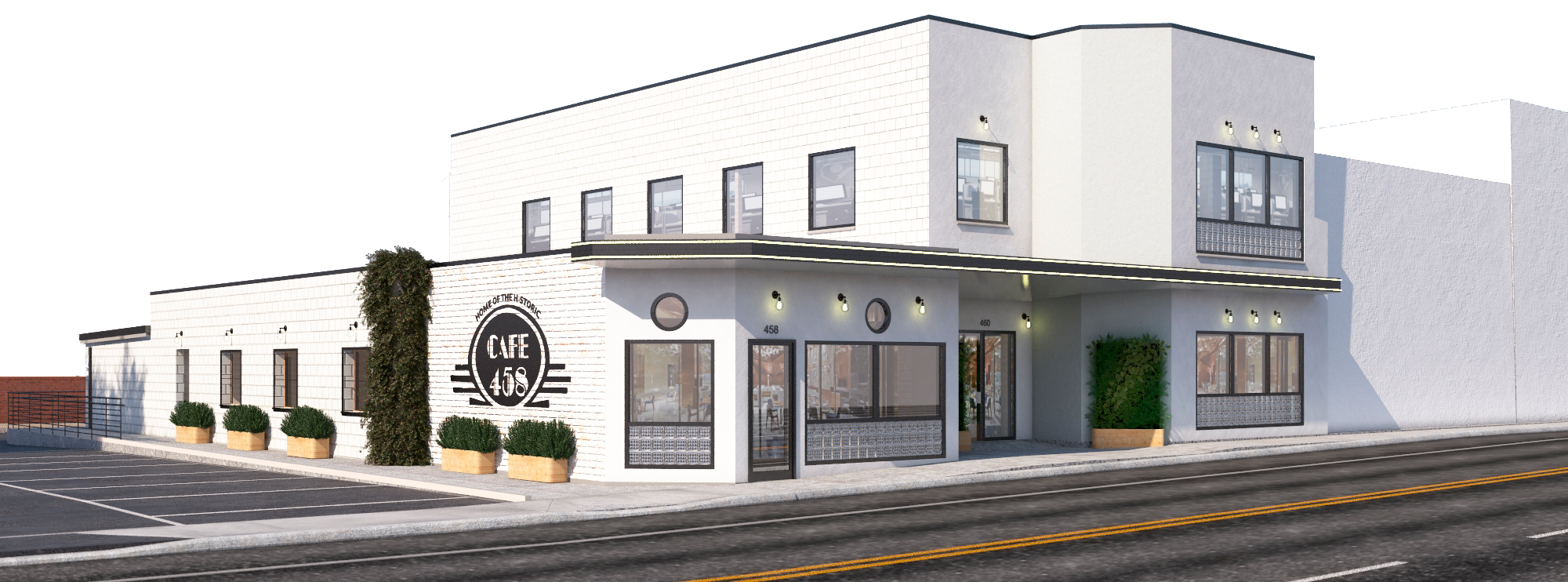
In 1981, Ann Connor and A.B. Short coordinated the opening of the Oakhurst Hospitality House, a cold-weather night shelter at Oakhurst Baptist Church in Decatur, GA.
The next year Ann and A.B. bought a dilapidated house nearby, renovated it, and opened their home year-round to guests from the shelter. This became The Community of Hospitality.
After COH opened Café 458, the world’s first sit-down, reservation-only restaurant for people experiencing homelessness, the COH house transitioned into a community of full-time volunteers, supported by a wider non-residential community that gathered weekly for interfaith meetings in the house.
For over two decades, COH drew people from around the world who wanted to share life together.
In 2012, the historic COH house became home to L’Arche Atlanta, a house-based community for people with and without disabilities. L’Arche continues to practice community in the house. The wider COH interfaith community continues to meet weekly.
BACKGROUND: Volunteers renovate the COH house in 1982. FOREGROUND: The COH house as drawn by Mel Art and printed in a 1986 COH newsletter.

In 1987 Café 458 co-founder A.B. Short and Georgia Justice Project founder John Pickens walked the streets, looking for a home for both the restaurant and the Justice Project.
They found an abandoned building directly behind the King Center. After months of volunteer labor, the Café opened in the summer of 1988, with the Justice Project’s office inside. It was the world’s first sit-down, reservation-only restaurant serving people experiencing homelessness.
Two years later, Café staff opened an alcohol and drug recovery program to serve Café guests. In 1996, the Recovery Program moved into a new, adjoining building at 460 Edgewood.
Full-time volunteers staffed the Café and Recovery Program, returning home nightly to live together in the COH house.
For decades, the buildings at 458 and 460 Edgewood provided a relationship-centered, dignity-affirming space for people experiencing homelessness and addiction.
In 2021 – thirty-four years after Café 458 opened – the Community of Hospitality again renovated the buildings at 458 and 460 Edgewood Avenue. COH shares the space with multiple organizations and much of the ground floor of the building is preserved as a collaborative, affordable space accessible to community organizations, educators, and artists working within vulnerable and underrepresented groups.
COH aspires for this historic building to continue to be a space for relationship-based social transformation and healing.
458 Edgewood Avenue photographed in 1987, prior to initial renovations and the opening of Café 458.
A Café table setting photographed in the early 1990s.
BACKGROUND: 458 Edgewood Avenue photographed in 1987, prior to initial renovations and the opening of Café 458. FOREGROUND: The Café logo as printed on a fundraising envelope in the late 1980s.
COPYRIGHT 2022 © COMMUNITY OF HOSPITALITY, INC.




